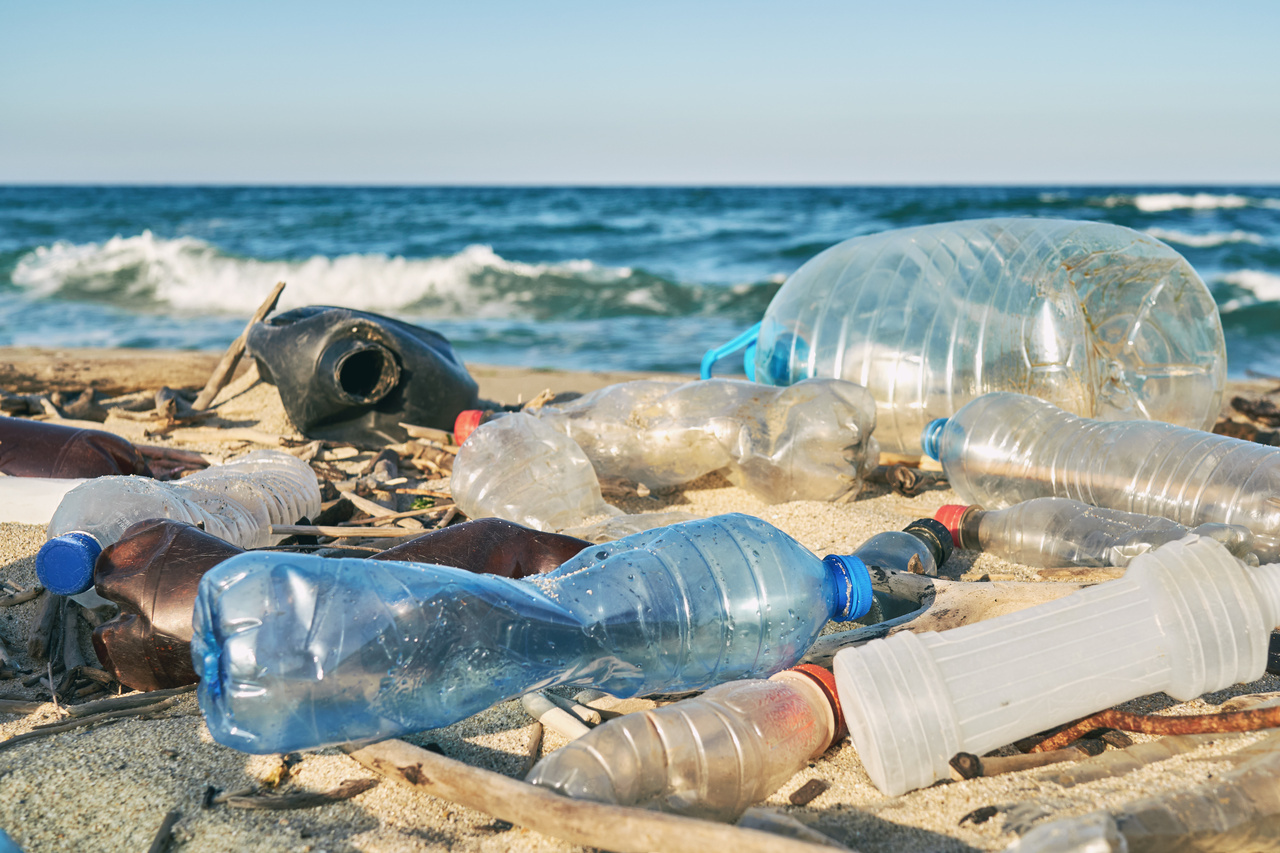May blog: Plastic fantastic! A reflection on plastic coverage across the media and policy


Welcome to Dr. Adam Read’s latest blog for EfW Net
Every few months Dr Adam Read, Chief Sustainability and External Affairs Officer @ Suez UK discusses the big issues from his point of view, and this time he is reflecting on plastic coverage across the media and where policy reforms might be going.
Plastic fantastic!
There’s never a day that goes by when plastic packaging and its impact on the environment isn’t in the media: with campaign groups, NGOs, academics, brands and consumers all having something to say about what makes good packaging, why it is so prevalent in nature, how far up the food chain it is now being found and what policy interventions are needed to move the dial on plastic recycling, design and consumption. But where are we on the plastic debate right now?
Global Plastics Treaty
Late last month, after a week of heated discussions, the penultimate round of the UN Global Plastics Treaty concluded with some countries disappointed that strong legally binding targets are now off the table. The Treaty is intended to reduce the absolute level of plastics production globally, whilst focusing on the materials that pose the most risk to the environment and public health while improving waste management provision across all nations. Previous rounds of negotiations, which I was actively involved in, occurred in September and November 2023. The final few days saw negotiations around the details in the document, specifically the problematic and avoidable plastics, chemicals of concern, primary plastic polymers, product design, composition and performance, and, of course, extended producer responsibility (EPR) and global rules. While states had differing opinions on nearly all these key points, nearly all the states agreed on the importance of a consistent global EPR system and a need for global rules, but the editing of the document and its details has yet to begin.
Looking forward, the countries have agreed on a plan for formal intersessional work ahead of the final negotiation round (round five) in Korea in November 2024. The intersessional discussions will focus on the means of the treaty’s implementation, chemicals and products of concern, as well as product design. However, these sessions do not include textual negotiations, underscoring concerns regarding the effectiveness of the initial aim of finalising a treaty by the end of the year.
Although some progress has been made, there is still much to be delivered before 2025, and the treaty’s implementation and the increasing involvement of specific fossil fuel lobby groups is a worry for many involved in the process. Just what the treaty will mean for the UK remains unsure, but many organisations and companies have been able to input through DEFRA and their engagement programme to date, but if I’m being brutally honest most of us involved in the UK market will have been focused on a range of other policy issues a little closer to home.
UK policy updates
If you have been tracking environmental news in recent weeks then none of this will be much of a shock, but so much has been happening that will ultimately impact the plastics coming onto the market, their use, capture post use, re-use and recycling, and their ultimate disposal. In no particular order, we could start with the delays to DRS until 2027, which for some might be seen as a negative message to the market but for many good news. Why? The delay will allow EPR and simpler recycling reforms to roll out in 2025 and for a new ‘norm’ to be established ahead of any major decisions having to be made about the DRS approach to be adopted here in the UK. Maybe other policy reforms will be so successful in driving changes in packaging design (modulated fees), its capture for recycling, and its processing that plastics won’t be part of any future DRS programme – only time will tell!
On a more positive note, we have the continuing expansion of the FlexCollect project, sponsored by the Flexible Plastic Fund, which is trialing the capture of flexible plastic packaging from target households in a range of local authority areas to help build an understanding of the realities of public engagement, collection, storage, and processing of this material and the costs of such services to help inform future EPR fees when flexibles are part of the simpler recycling requirement (2027). An interim report was released by SUEZ in early April and the programme continues to expand with new authorities coming on-line in 2024. This is not only an exciting trial, but it is underpinning future policy development and the design of new collection services in the short term and processing infrastructure (possibly enabling chemical recycling growth here in the UK) in the medium term.
Another area of real progress has been the Government’s announcement to ban wet wipes that contain plastics, with DEFRA announcing in April that by the end of 2024, new legislation will be in place. This should drive changes in design for those companies who haven’t switched to alternative materials and will ultimately help reduce pollution through our watercourses. Well done DEFRA, it’s just a shame that some of the other policy reforms haven’t been moving at a similar pace!
Media coverage
And with the upturn in policy decisions, there has been no shortage of media coverage from our own trade journals to mainstream radio and print, but the one that caught my eye is the annual Greenpeace plastic count which first started in 2022 and had 100,000 people counting their plastic waste in 1 week and this year took place in mid-March with over 220,000 people reporting their plastic rubbish – over 4.6 million items were recorded this time around!
The report results highlight the need to improve packaging design, the limited amount of plastic recycling that happens in the UK, and the reliance on energy from waste facilities to deal with this material. They put together a strong call to arms for both Government and industry to implement significant change to curb pollution and to reduce our carbon emissions which is worth a look if you haven’t seen it already.
What this campaign and the continued coverage in the media suggest is that concerns about plastic, its use, its recycling, and its future policy development and implementation remain high on the public’s agenda and as such will remain high on the political agenda too. As a sector, we must work with our partners, our customers and our supply chains to help drive up plastics capture at the kerbside, reduce the plastics entering our energy recovery sites that could be better utilised (reused, recycled or refilled) and work with packaging manufacturers to reduce the need for unnecessary plastic packaging and improve the recycled content of packaging and its ability to be easily segregated and separated to make recycling simpler and more effective.
We still have a long way to go, but many of the necessary steps are now being finalised and should soon be implemented and that should provide a welcome positive news story or two for the media – at least I hope so! But the impending General Election might derail some of this progress, I hope not……
QUESTION – Are you confident that the work being done on plastic packaging and the Government’s policy reforms will significantly drive up plastic recycling and reduce plastic consumption?
Note
As with all my ‘blogs’ they are mine and mine alone. If you would like to get in touch or comment on them then please do so, as I am more than open to some good ‘old-fashioned’ debate and dialogue. Please email me on adam.read@suez.com or follow me on social media.
Bio
Adam is Chief Sustainability and External Affairs Officer at SUEZ Recycling & Recovery UK Ltd, working with DEFRA, DESNZ and other key industry stakeholders on the rapidly evolving policy landscape in the UK, and representing the company on numerous technical working groups and with the media. He is a former President of the CIWM and a member of their Trustee Board and their Policy Innovation Forum, whilst also chairing the ESA’s Policy and Resource Strategy Working Group. He has over 25 years of waste & resource sector experience spanning academia, local government, consultancy and for the last 6 years in the private sector with SUEZ. He is also a Fellow of the RSA, RGS, CIWM and IOM3, and is passionate about #sustainability #greenskills and #mentoring.
Dr Adam Read, External Affairs Director @ SUEZ / adam.read@suez.com






Please sign in or register for FREE
If you are a registered user on Energy from Waste Network, please sign in